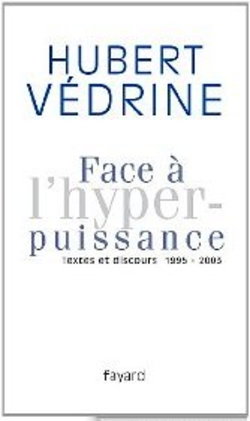Question: How has the Middle East Forum evolved over 20 years?
Answer: The internet changed our life. We used to send out mail in batches of a hundred; now, my website alone has had 67 million page views. This means we no longer depend on the media gatekeepers but can do much on our own. The rise of Islam in the West has given us a second topic, a new and brash one, where we are intensely involved. Finally, the ever-higher profile of our topics, the Middle East and Islam, have pressed us hard to keep up.
Q: What makes MEF stand out?
A: We base our work in deep scholarship, look at the big picture, and take uncommon risks in our predictions, our bold positions, and our strategic advice.
Q: In 1995, you warned: "Unnoticed by most Westerners, war has been unilaterally declared [by Islamists] on Europe and the United States." But your view was largely ignored until 9/11, when you were hailed for prescience. Is there a similar danger today that does not receive sufficient public attention?
A: Two come to mind. While the threat of Islamist terrorism is now appreciated, the yet-more perilous phenomenon of lawful Islamism, which operates within the system to impose Shari'a, is too much ignored. Also, the depth and extent of the Middle East's degeneration is not realized. People know individual problems – Iran building a nuclear weapon, Syria in conflagration, Egypt approaching hunger, Yemen running out of water, Libya in anarchy – but miss the larger picture of a sick, declining, and hazardous region. There's too much happy talk about democracy and economic development when the real issues are war and starvation.
Q: At the Forum's founding, Islamism was in the midst of a long ascent. Is that still the case?
A: I see signs suggesting that Islamists are unable to cooperate among themselves and are alienating their subject populations. If this continues to be the case, it could mean that the Islamists have peaked. The challenge now is for anti-Islamist Muslims to present their ideas as a viable alternative.
 Q: In 1994, the United States was already what French foreign minister Hubert Védrine would in 1998 call the "hyperpower," without rival in the Middle East. How have things developed since then?
Q: In 1994, the United States was already what French foreign minister Hubert Védrine would in 1998 call the "hyperpower," without rival in the Middle East. How have things developed since then?
A: It's been two decades of wasted opportunities, errant expeditions, arrogant overreach, and faulty emphases, fittingly culminating in the disastrous just-signed Geneva accord with Tehran. Not only is the Middle East going in the wrong direction, but so is U.S. policy, making for a fraught combination.
Q: Has Middle East and Islamic studies – famous for its politicization, its advancing Islamism, and its making a focus on Palestinian "suffering" the sine qua non of a successful career – evolved over the past two decades?
A: Not much, but I note two positive exceptions. This field has become a topic of public discussion, thanks to its high profile and the work of we critics. Plus, 9/11 and the two main wars, Afghanistan and Iraq, brought new cohorts into the field who promise to breathe fresh, more moderate life into it.
Q: What advice do you have for one of these scholars in Middle East studies who is just starting out and who dissents from the university's hegemonic discourse?
A: Stay away from political topics and keep your head down ... until you get tenure.